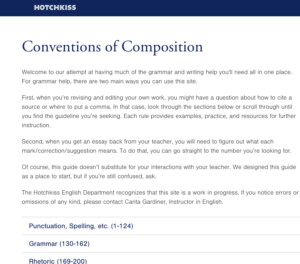
...and YOU SHOULD LOVE GRAMMAR, TOO!
I can't believe how many people have the totally wrong idea that grammar is dull. Clearly, they've been looking at language backwards. S-D-R-A-W-K-C-A-B! Turn that thinking around. If you want to share an idea, you need to give it in a way that the other person can understand.
That's what grammar is about, helping people understand and eventually love you. Remember, others can’t know the real you until they comprehend your way of thinking, and they can't comprehend your way of thinking if you can't express yourself clearly!
WHY DOES IT MATTER?
Years ago, I found these two Dear John letters above on the internet and was captivated by how the same words in the same order could give opposite meanings based on changes in punctuation. I don't know who wrote the letters, but they got me thinking about the importance of something as tiny as a period.
Think, for example about tone in texts. I would think most people of a certain age (which I am) have two tones in their texting, regular and ALL CAPS. I thought those were my only options. It turns out that "K" carries a totally different one from "OK" or "ok", which also differ from "okay" (which nobody under a certain age knows is the actual work). The part I hadn't considered able to express tone was the punctuation. If my daughter asks me a question and I answer "Okay.", she asks why I'm mad her. I'm not mad, I'm an English teacher! We like our thoughts to start with capital letters end with periods. Even the fragments. (See what I did there?) So I realize that...drumroll please...
COMMUNICATION IS KEY
In order to form relationships, we need to be able to share our ideas. To do that in writing, we need to do more than just speak the same language. We also need to follow the same rules about how to put those words together.
Some common mistakes that hinder understanding:
- Misplaced modifiers
- Agreement problems (subject-verb, pronoun-antecedent)
- Run-on sentences and fragments
- Comma errors (made famous by Lynne Truss’s Eats, Shoots, and Leaves)
But even if you’re writing something that’s totally clear, you’ll want the person reading it to take you seriously. One way to inch in that direction is to keep your writing error free.
WHAT DO YOU THINK?
Have I convinced you of the importance of paying attention to the details in your writing? If so, please leave a comment to let me know which rules you like and which you find confusing. I promise to agree with the former and try to explain the latter!